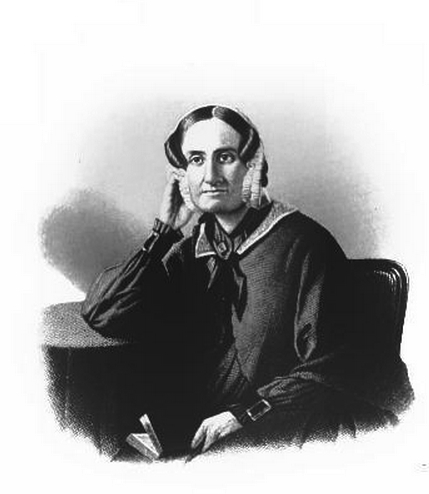
The children of an American merchant and an English woman, the Preble sisters were raised in post-Revolutionary France, where their friends included General Lafayette and members of Napoleon’s family. Eventually, the family immigrated to Manchester, where Harriet became an accomplished artist, writer, and translator, and she and her sister, Anica Preble Barlow, each ran their own boarding school for girls. Below, Harriet advises her sister on what she finds most important in the education of young girls.
September 30th, 1824.
What strikes me more than anything else in the education of girls, is the incorrect manner in which they are allowed to express themselves. On that chapter, my sister, you cannot commence too soon with your children, nor give it too much attention. The most charming of all gifts is that of being able to express one’s thoughts with elegance; it will often supply the place of wit even for those who have none, and as one may have wit, and yet express one’s self very ill, these two cases make one feel the necessity of taking care of children’s language. Accustom them to relate to you what they are doing; make them feel that they must put some order into their little ideas, and that they must give themselves time to choose their words; and endeavor adroitly to find the means to make them repeat the same thing, that they may express it in better words. Try to enrich their vocabulary; it is for that reason it is necessary to make them learn by heart, taking care to explain to them clearly the value of words. I often think of the importance of this study, which gives us such power over the heart and mind, and I am persuaded by commencing early, speech is an art that can be improved at will.
Preble, Harriet, 1795-1854, Letter from Harriet Preble to Anica Preble Barlow, September 30, 1824, in Memoir of the Life of Harriet Preble: Containing Portions of Her Correspondence, Journal and Other Writings, Literary and Religious. Lee, R.H.. New York, NY: G.P. Putnam’s Sons, 1856, pp. 409.


